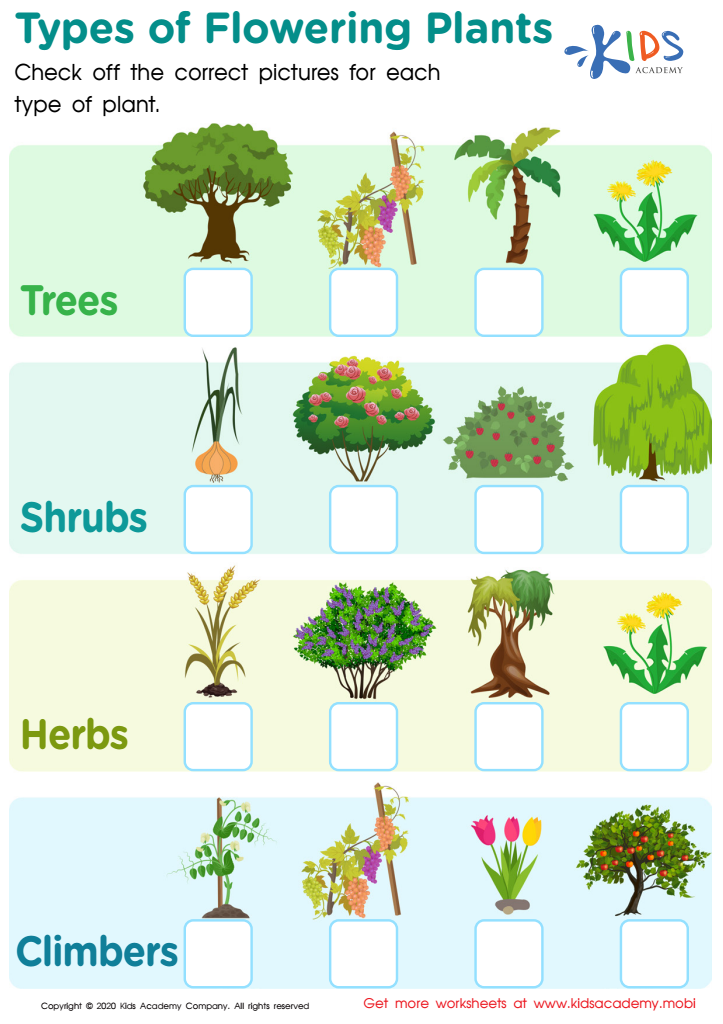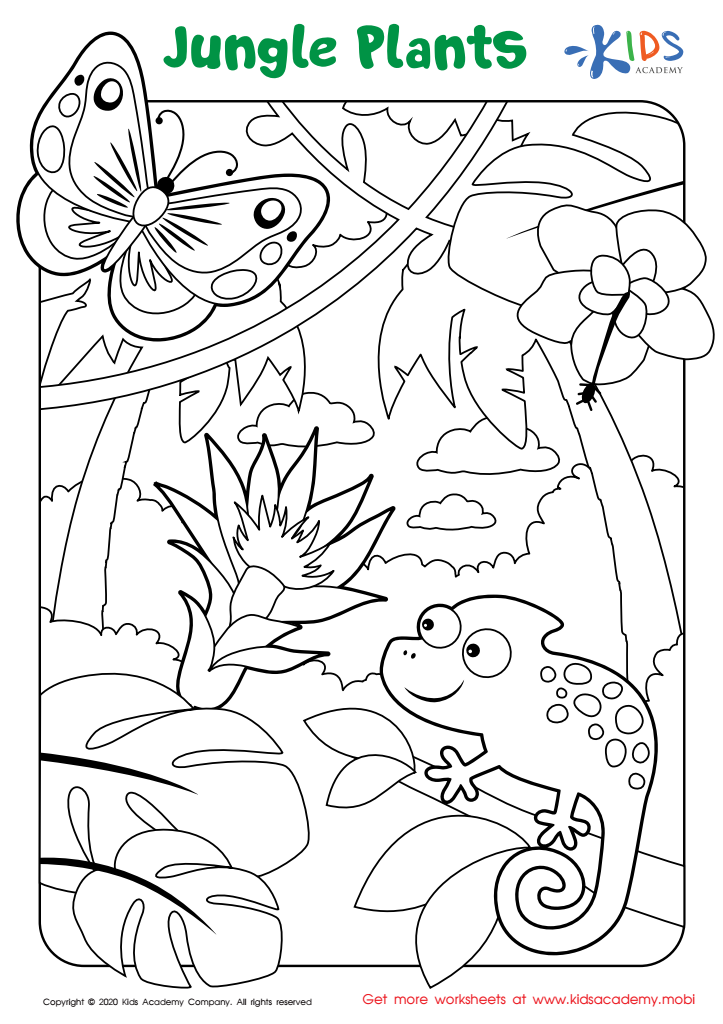Plant identification Grade 1 Plants and Animals Worksheets
3 filtered results
-
From - To
Explore the wonders of nature with our “Plant Identification Grade 1 Plants and Animals Worksheets.” Perfectly tailored for young learners, these engaging activities help first graders differentiate and identify various plants through vivid illustrations and simple descriptions. Each worksheet is designed to enhance observation skills and foster a love for biology while meeting educational standards. Children will enjoy interactive tasks that stimulate their curiosity about the natural world. Ideal for classroom use or at-home learning, these resources offer an excellent foundation for budding scientists. Ignite your child’s passion for plants and animals with our fun, educational worksheets today!


Types of Flowering Plants Worksheet


What Do Plants Need to Grow Worksheet


Jungle Plants Worksheet
Parents and teachers should care about plant identification in Grade 1 for several important reasons. Firstly, teaching young children to identify plants fosters environmental awareness and appreciation. By knowing and naming local plants, children develop a connection to nature, which can inspire lifelong habits of caring for the environment.
Secondly, plant identification nurtures observational skills and critical thinking. When children explore differences and similarities among plants, they learn to observe details, categorize, and make scientific inquiries. These are foundational skills that will benefit them in all areas of learning.
Furthermore, understanding plants helps children grasp basic scientific concepts such as growth, photosynthesis, and the ecosystems in which plants live. It also introduces them to interdisciplinary subjects connecting biology with geography and climate studies.
Additionally, this knowledge promotes health and safety. Knowing which plants are safe and which are potentially harmful or poisonous equips children with important survival skills. Lastly, these activities can be deeply engaging and enjoyable, making learning an adventure while promoting physical activity as children explore different environments.
In summary, plant identification is a gateway to broader environmental awareness, critical scientific skills, and health knowledge. By nurturing an interest in plants early on, parents and teachers can set the foundation for a well-rounded and nature-respecting education.
 Assign to My Students
Assign to My Students
















